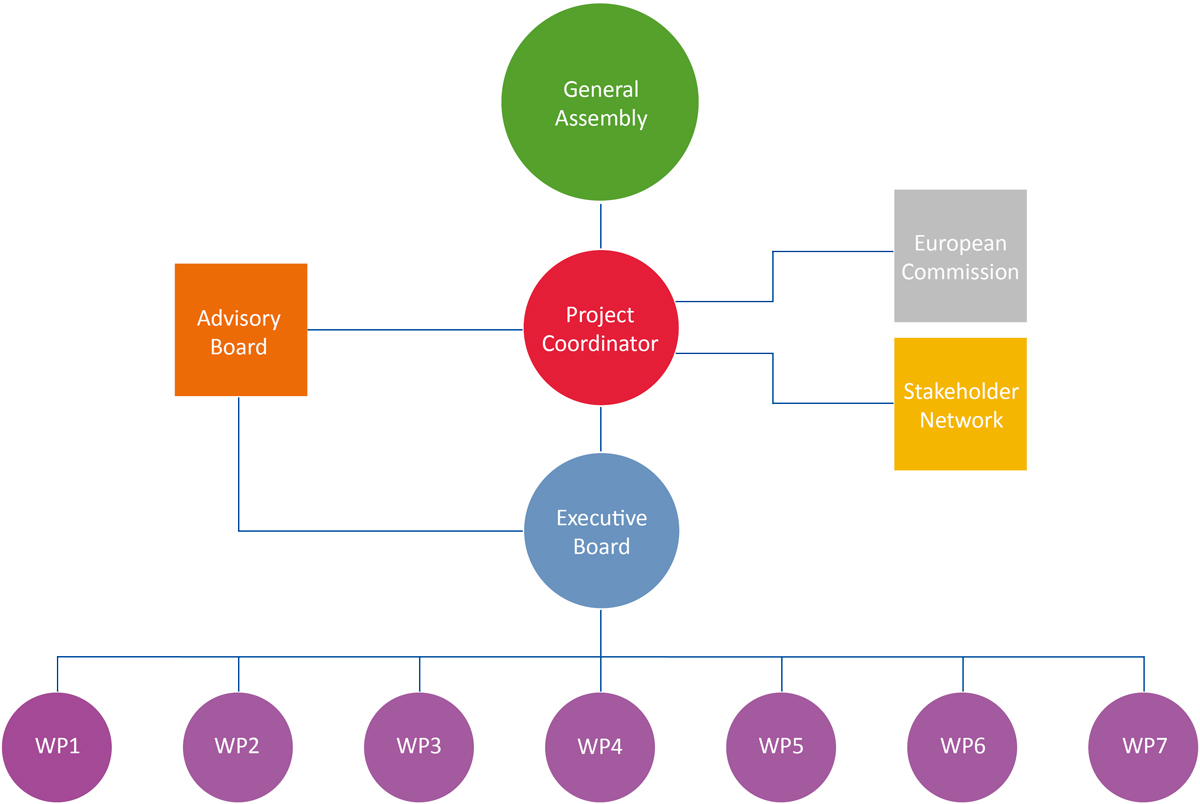Organisation
The growing knowledge generated by the project, particularly its operational components, can be accelerated by means of rigorous day-to-day knowledge transfer. To this end, the management structure chosen for DESTRESS is designed to foster strong collaboration between the working groups as well as rapid decision-making.
General Assembly
The General Assembly is the highest body in the consortium and approves the major decisions in the project. All participants have one vote.
Advisory Board
The Advisory Board is an external group of experienced actors in the field. These high-level actors are a priori independent from the participants. The Advisory Board will advise and support the project, especially in major decision processes.
Its current members are:
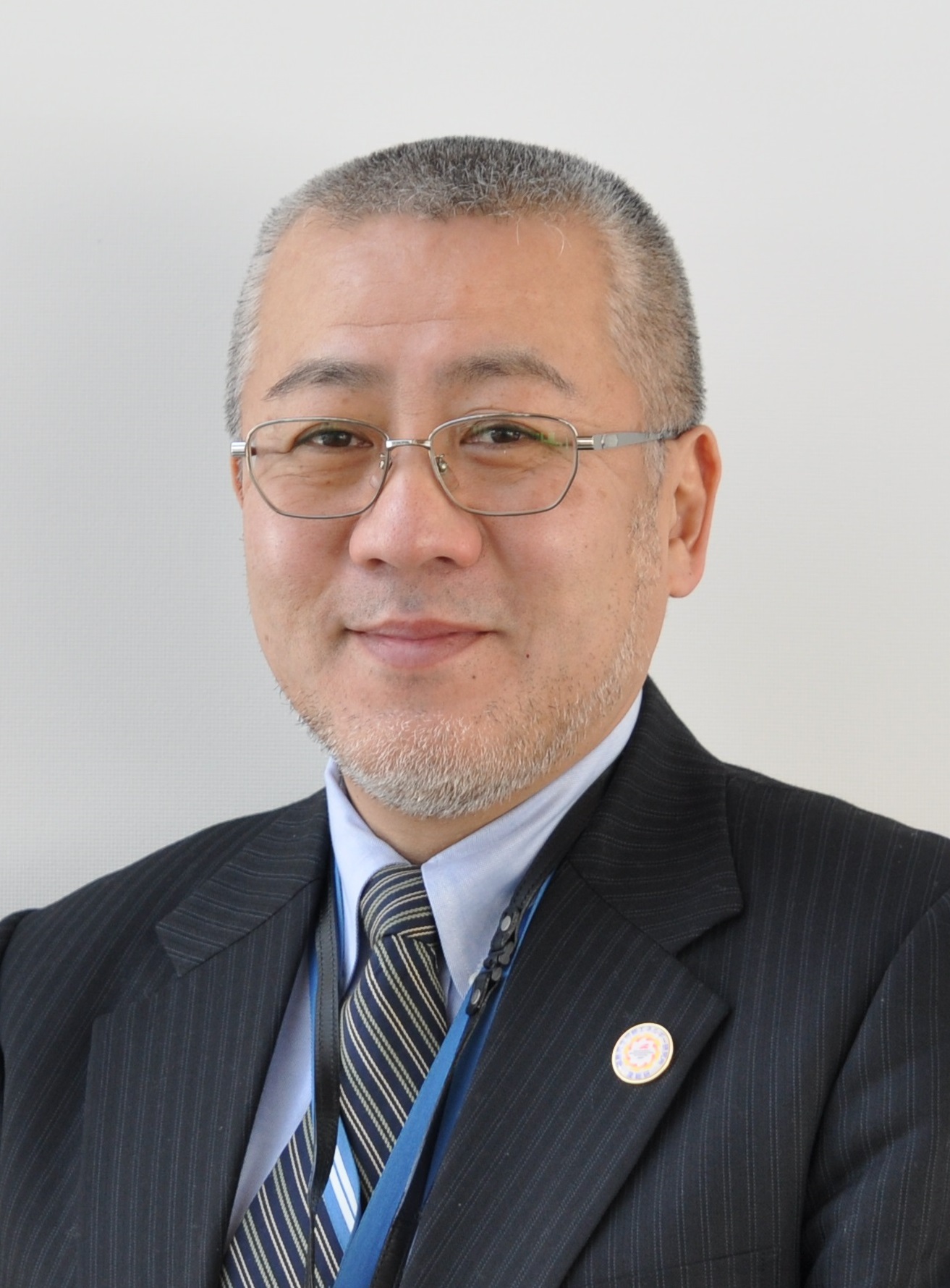
Dr. Hiroshi Asanuma
Dr. Asanuma is a leader of Geothermal Team in Fukushima Renewable Energy Research Center (FREA), National Institute of Advanced Industrial Science and Technology (AIST), Japan since 2013. Dr. Asanuma was the Associated Professor of Graduate School of Environmental Studies, Tohoku University, Sendai, Japan, before his appointment at AIST. He received his PhD from the Department of Electrical and Communication Engineering, Graduate School of Engineering, Tohoku University in 1992. Since his graduate student, Dr. Asanuma has been mainly working in the area of microseismic monitoring of enhanced geothermal systems (EGS). He has experiences in microseismic monitoring at EGS sites including Soultz, Cooper Basin, Basel, and Ogachi. Dr. Asanuma is currently coordinates “Supercritical Geothermal Project” in which feasibility of gigawatt-scale geothermal power generation from subduction-origin ultra high temperature geothermal resources (around 500 deg-C) in Japan has been investigated.
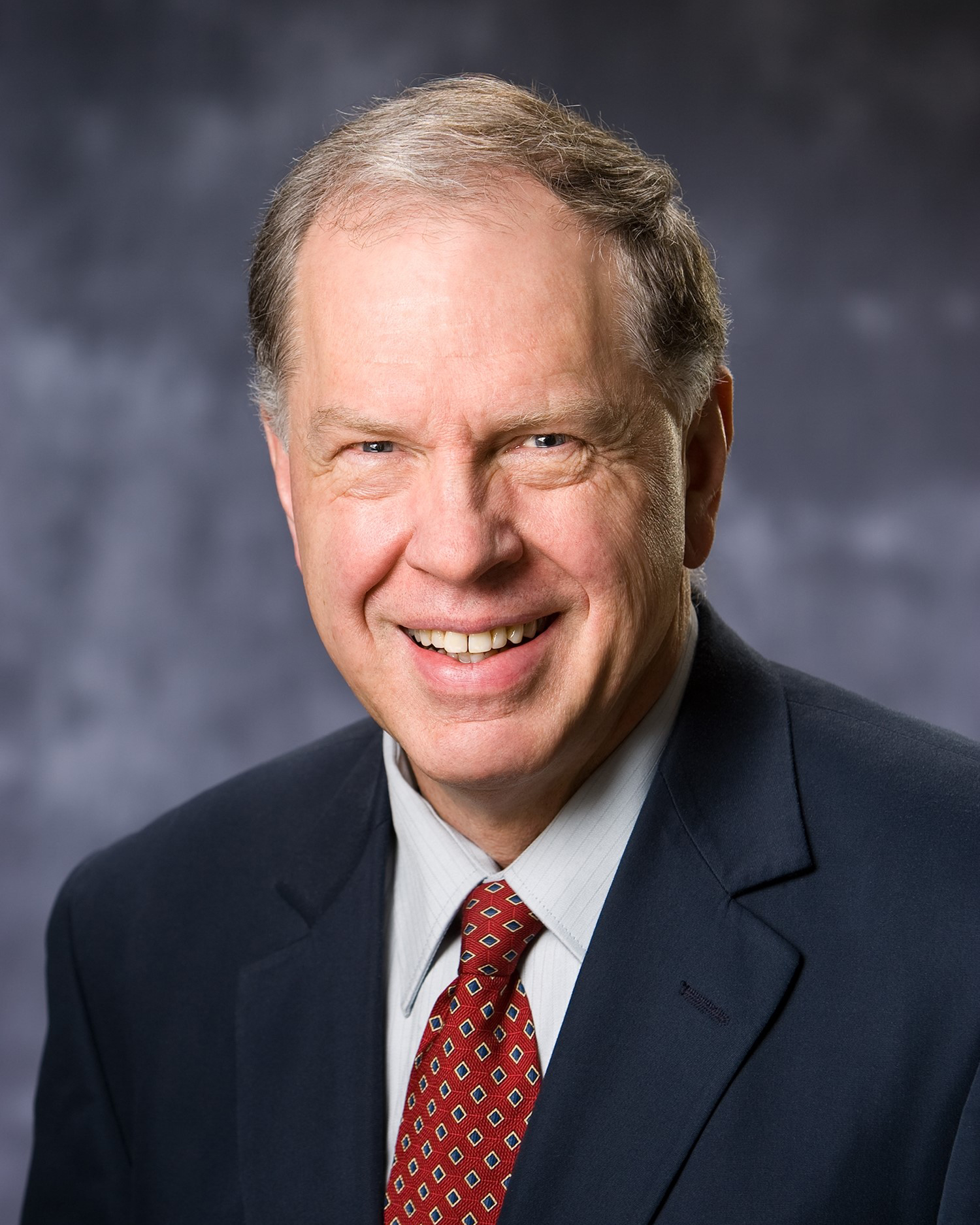
Dr. Jefferson W. Tester
Dr. Tester is Croll Professor of Sustainable Energy Systems in the School of Chemical and Biomolecular Engineering at Cornell University and serves as Director of the Cornell Energy Institute. Prior to his appointment at Cornell in 2009, Dr. Tester was the H.P. Meissner Professor of Chemical Engineering at the Massachusetts Institute of Technology and served as Director of MIT's Energy Laboratory for 12 years. While at MIT, he chaired international panel that evaluated the long-term geothermal potential of the US, resulting a major report in 2007. Dr. Tester was the US representative for geothermal energy to the IPCC working group, which evaluated the global potential of renewable energy. In 2011 Dr. Tester received the Special Achievement Award, Geothermal Resources Council. He has published extensively in the energy field, including two books on geothermal energy technology. He has served on the advisory boards for several Laboratories and the American Council on Renewable Energy.
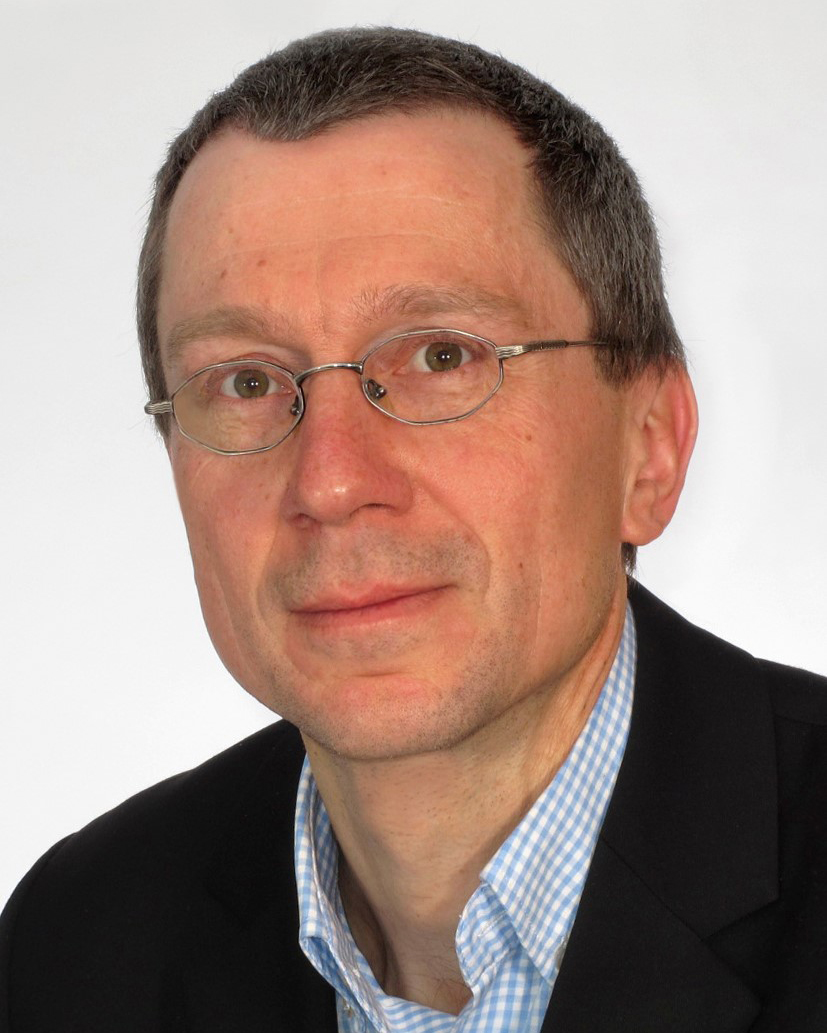
Dr. Torsten Tischner
Dr. Tischner is a physicist and obtained his diploma at the Technical University of Berlin. His PhD research at the Leibniz-Institute of Freshwater Ecology and Inland Fisheries in Berlin was focused on chemical and hydraulic processes controlling phosphorus leaching in soils and groundwater. Since 2000 he has been working with the Federal Institute for Geosciences and Natural Resources (BGR) in the field of Geothermics. Dr. Tischner was involved in the geothermal project “Groß Schönebeck” and mainly responsible for hydraulic testing and for planning of stimulation operations. Since several years now he coordinates the scientific investigations and field operations within the GeneSys-project focusing on the geothermal utilization of low permeable sedimentary rock. Besides he was responsible for the activities of BGR within the European research project “Soultz” in France and head of the unit “Geothermal Energy” at BGR and he is now deputy head of the restructured unit “Geothermal Energy and Geological CO2-Storage”.
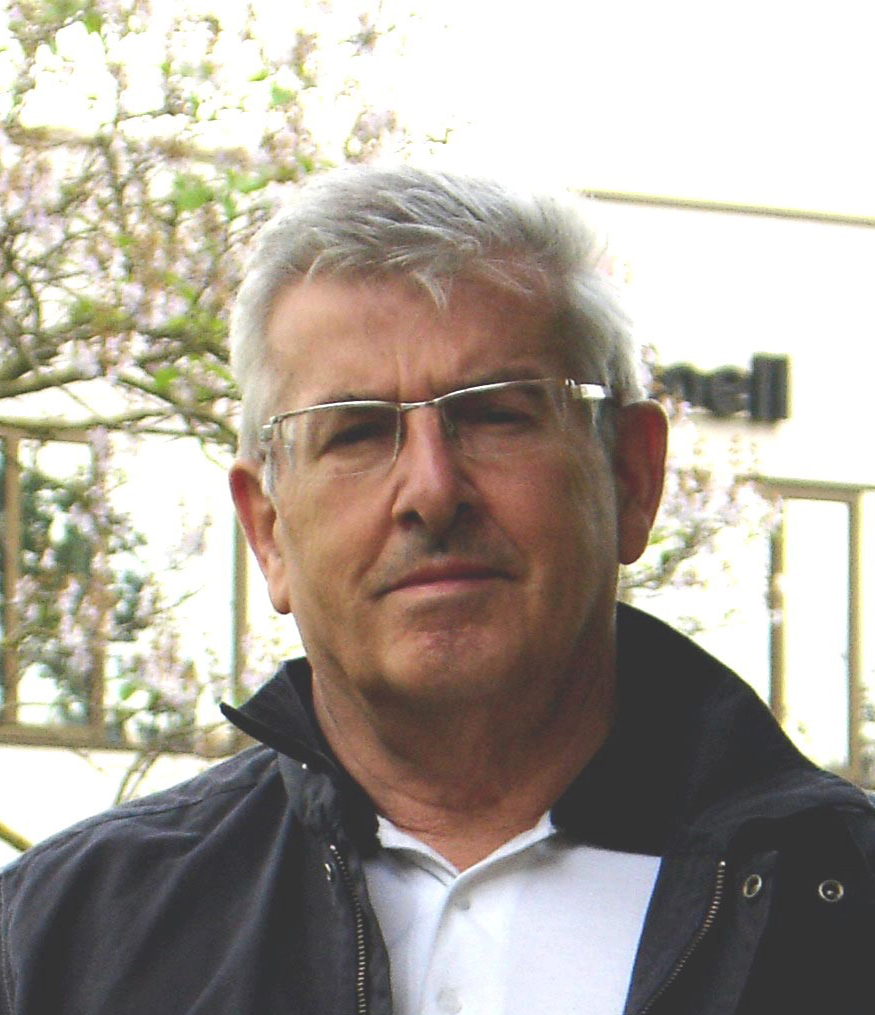
Pierre Ungemach
Pierre Ungemach is presently chairman/CEO of GPC IP, a geothermal engineering and service company he created in 1989, and of its sister company GEOFLUID, founded in 2013. He obtained his Master degrees in Physics and Applied Mathematics and his Post graduate degree in geophysical engineering. Ungemach has wide experience in Physics of the Earth Interior, geophysical prospecting, reservoir engineering and simulation, well testing and log analysis, water injection/production engineering and servicing. Pierre Ungemach served successively as member of academic staff (University of Strasbourg), ground water consultant (Italconsult, Roma), research engineer (French School of Mines, BRGM), project manager (Middle East, BRGM), reservoir simulation expert (BRGM), R&D programme manager in geothermal energy (European Commission, DG XII) and geothermal manager (Geophase/Geotherma, Geoservices group).
Executive Board
The Executive Board is the supervisory body for the execution of the project, which reports to and is accountable to the General Assembly. The Executive Board comprises the individuals responsible for managing the various organisational, financial, scientific and industrial aspects of the project. In particular, it is composed of a Chairman (Dr Albert Genter), a Project Manager (Dr Justyna Ellis), a Dissemination Manager (Michèle Marti), Work Package Leaders and Industrial Representatives. The EB is mainly responsible for coordinating the execution of different work packages, monitoring the effective and efficient implementation of activities, the progress of the project and its results, communicating with members of the Advisory and Stakeholder Boards and proposing decisions concerning changes in schedule, finances and any unforeseen or negative developments.
Stakeholder Network
DESTRESS’ stakeholder network facilitates the exchange of good practices. Read more and become a part of it! The Stakeholder Board comprises:
- Stadtwerke Dresden, Germany;
- City of Litomerice, Czech Republic;
- Erdwerk GmbH;
- national geothermal associations (e.g. Lithuania and others tbc);
- GEOFLUID;
- and others to be invited during the launch phase, such as insurance companies and EGEC.
Work Packages
Every work package (WP) is represented by a leader and co-leader, who lead the WP team and are responsible for the correct execution of objectives, the management and coordination of activities planned in the WP tasks and the timely delivery of reports and results (deliverables).
Project Coordinator
The Project Coordinator acts as the intermediary between the parties and the European Commission (EC).



